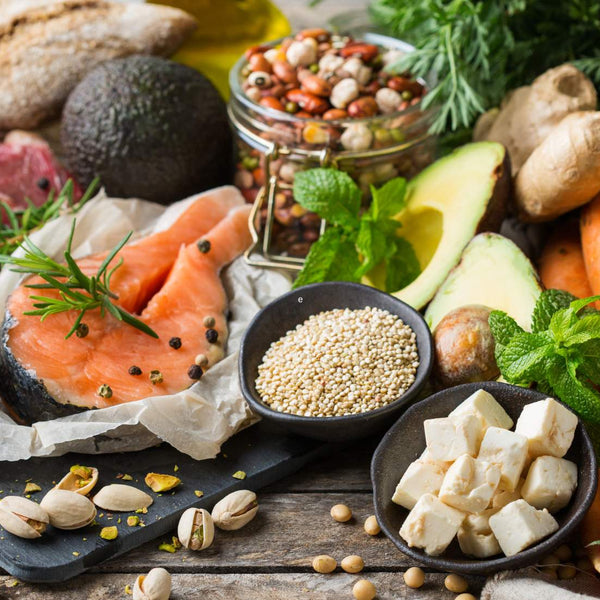From Plate to Pain: Understanding the Impact of Nutrition on Endometriosis

Image Source: Google
Endometriosis is a chronic condition in which tissue similar to the lining inside the uterus, known as the endometrium, grows outside the uterus. This condition can cause severe pain, especially during menstruation, as well as infertility and other complications. While the exact cause of endometriosis is not fully understood, research suggests that diet and nutrition may play a significant role in managing the symptoms and progression of the disease. In this article, we will explore the best nutrition for endometriosis and how dietary choices can influence the management of this condition.
The Role of Nutrition in Endometriosis
Key Points:
- Research indicates that certain dietary factors can either worsen or alleviate symptoms of endometriosis.
- Some foods may promote inflammation in the body, exacerbating pain and discomfort associated with endometriosis.
- Other foods have anti-inflammatory properties and can help manage symptoms and improve overall well-being.
Studies have shown that diet can influence the development and progression of endometriosis. Certain foods and nutrients can either promote inflammation in the body or have anti-inflammatory effects, which can impact the symptoms experienced by individuals with endometriosis. Understanding the role of nutrition in this condition is crucial for effectively managing the symptoms and improving quality of life.
Foods to Avoid
Inflammatory Foods:
- Processed foods: Foods high in refined sugars and unhealthy fats can contribute to inflammation in the body.
- Red meat: Studies suggest that red meat consumption may be linked to an increased risk of developing endometriosis.
- Dairy: Some individuals with endometriosis report worsening symptoms with the consumption of dairy products.
- Caffeine: While moderate caffeine consumption is generally considered safe, excessive intake may exacerbate pain and discomfort.
Avoiding certain foods that can promote inflammation is key in managing symptoms of endometriosis. Processed foods, red meat, dairy, and excessive caffeine consumption are examples of items that may worsen symptoms and should be limited or avoided.
Beneficial Foods
Anti-Inflammatory Foods:
- Fruits and vegetables: Rich in vitamins, minerals, and antioxidants, fruits and vegetables can help reduce inflammation in the body.
- Fatty fish: Omega-3 fatty acids found in fish like salmon and mackerel have anti-inflammatory properties.
- Whole grains: Foods like quinoa, brown rice, and oats are rich in fiber and can help regulate hormone levels.
- Herbs and spices: Turmeric, ginger, and cinnamon are known for their anti-inflammatory effects and can be beneficial for individuals with endometriosis.
Incorporating anti-inflammatory foods into your diet can help manage symptoms of endometriosis and promote overall well-being. Fruits, vegetables, fatty fish, whole grains, and herbs and spices are examples of foods that can have positive effects on inflammation and hormone regulation in the body.
Supplements and Nutrients
Essential Nutrients:
- Omega-3 fatty acids: Supplements can be beneficial for individuals who do not consume enough fatty fish in their diet.
- Magnesium: Known for its muscle-relaxing properties, magnesium can help alleviate pain and cramping associated with endometriosis.
- Vitamin D: Adequate vitamin D levels are important for immune function and overall health.
- Iron: Many individuals with endometriosis experience heavy periods and may benefit from iron supplementation.
In addition to dietary changes, incorporating supplements and essential nutrients into your routine can further support the management of endometriosis symptoms. Omega-3 fatty acids, magnesium, vitamin D, and iron are examples of nutrients that may be beneficial for individuals with this condition.
Conclusion
It is clear that nutrition plays a crucial role in the management of endometriosis. Making informed dietary choices and incorporating anti-inflammatory foods can help alleviate symptoms and improve overall quality of life for individuals living with this condition. While there is no one-size-fits-all approach to nutrition for endometriosis, working with a healthcare provider or nutritionist to develop a personalized diet plan can be beneficial in effectively managing the symptoms of this chronic condition.

